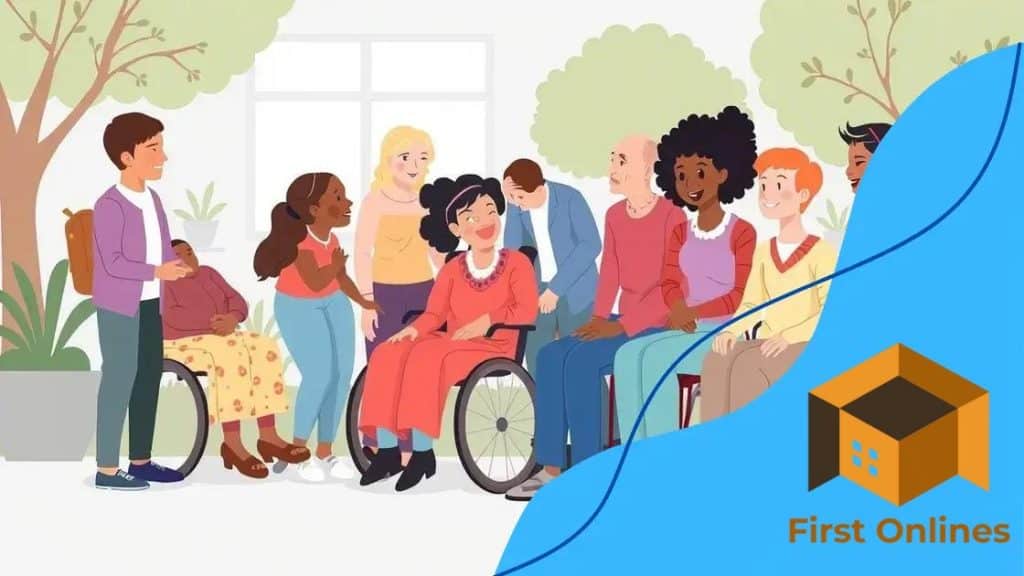Federal assistance for people with disabilities in 2025

Anúncios
Federal assistance for people with disabilities includes financial support, healthcare access, and vocational training, significantly enhancing their quality of life and promoting independence within the community.
Federal assistance for people with disabilities in 2025 promises to reshape support systems for individuals facing challenges. Curious about how these changes might help those in need? Let’s dive into what’s on the horizon.
Anúncios
Overview of federal assistance programs
When exploring federal assistance programs, it’s essential to understand their structure and purpose. These programs are designed to help individuals with disabilities access the support they need for a better quality of life. They offer a range of resources tailored to various needs.
Key Federal Assistance Programs
Some of the most important federal assistance programs include:
- Social Security Disability Insurance (SSDI)
- Supplemental Security Income (SSI)
- Medicaid
- Vocational Rehabilitation Services
Each of these programs plays a crucial role in providing financial aid and healthcare services.
Anúncios
How These Programs Work
The programs listed above function under specific guidelines. For example, SSDI helps individuals who have worked and paid into the Social Security system but can no longer work due to a disability. On the other hand, SSI offers support to those who have limited income and resources, regardless of their work history.
Furthermore, Medicaid ensures that individuals can access necessary medical services without overwhelming costs. To qualify for these programs, applicants must provide various documents and meet specific criteria, which can vary from state to state.
Importance of Federal Assistance
Obtaining federal assistance is vital for many individuals with disabilities. It not only provides financial security but also enhances access to community resources. By empowering individuals through these programs, the federal government helps them lead more independent lives.
Eligibility criteria for 2025 assistance
The eligibility criteria for 2025 assistance programs are essential for understanding who can benefit from federal support. Each program has specific guidelines that applicants must follow. Knowing these requirements can help streamline the application process.
General Eligibility Requirements
Most federal assistance programs require applicants to meet certain conditions, including:
- Being a U.S. citizen or lawful resident
- Having a qualifying disability
- Meeting income restrictions
- Providing necessary documentation
These criteria help ensure that assistance goes to those who truly need it.
Disability Definition
To qualify for assistance, individuals must have a recognized disability. The Social Security Administration defines a disability as a condition that significantly limits one or more major life activities. It can include physical, mental, and sensory impairments.
Understanding how a disability is documented is crucial. Individuals may need medical records and assessments to support their claims. This documentation verifies the impact of their disability on daily functioning, which is essential in the eligibility assessment.
Income Limits
Another critical factor in determining eligibility is the applicant’s income. Federal assistance programs typically have income limits that ensure support is directed toward low-income individuals and families. Each program specifies its own limit, and applicants must provide proof of income through tax returns or pay stubs.
In addition to personal income, considerations may also include family size, which can influence the income threshold. This factor ensures that the programs remain accessible to those who need financial help the most.
Types of support available

Understanding the different types of support available for people with disabilities is essential. These programs aim to provide resources that enhance independence and quality of life. Knowing what assistance is offered can help individuals choose the right options for their needs.
Financial Support
One of the primary forms of assistance is financial support. Programs like Social Security Disability Insurance (SSDI) and Supplemental Security Income (SSI) provide monthly payments to help cover living expenses. This kind of support is crucial for individuals who cannot work due to their disabilities.
Additionally, these financial aids can help cover health-related costs, ensuring individuals have access to necessary medical care.
Healthcare Services
Another significant area of support focuses on healthcare services. Medicaid provides essential medical coverage for eligible individuals with disabilities. This ensures they receive necessary treatments, medications, and therapies without financial strain. Access to comprehensive healthcare is vital for maintaining health and overall well-being.
Vocational Training and Employment Support
Vocational training programs offer crucial support to help individuals with disabilities prepare for and find employment. Vocational Rehabilitation Services provide training, job placement assistance, and ongoing support to help individuals thrive in the workplace. These services are tailored to specific needs, allowing for a personalized approach to career development.
Moreover, such programs promote self-sufficiency and empower individuals to lead fulfilling lives. Having a job can significantly enhance a person’s sense of purpose and community involvement.
Transportation Assistance
Transportation can be a significant barrier for many individuals with disabilities. Many federal and state programs offer transportation assistance to help individuals access essential services and employment opportunities. Paratransit services provide specialized transportation tailored for those who cannot use regular public transit. Additionally, funding for vehicle modifications may also be available, making it easier for individuals to travel independently.
Application process for federal assistance
The application process for federal assistance can seem overwhelming at first. However, understanding the steps involved can make it easier for individuals with disabilities to apply for the support they need.
Gathering Required Information
Before starting the application, applicants must gather essential documents. This typically includes personal identification, proof of income, medical records, and any other relevant documentation. Having these documents ready helps prevent delays in the process.
It’s important to double-check that all information is accurate. Mistakes can lead to longer wait times or even denials of assistance.
Completing the Application
Applications can often be completed online, by mail, or in-person, depending on the program. When filling out the application, individuals should provide clear and detailed answers. The Social Security Administration, for instance, allows applicants to fill out the necessary forms online, making it convenient for many.
In-person assistance is also available through local offices. Meeting with a representative can provide clarity and guidance throughout the process.
Follow-Up and Communication
After submitting the application, it’s crucial to follow up. Applicants should keep track of their application status through the program’s website or by contacting their local office. This follow-up process ensures that any additional information requested is provided promptly.
Staying in touch with the authorities is key, as it allows applicants to address any potential issues that may arise during the process. Effective communication can significantly reduce delays.
Receiving a Decision
Once the application is processed, individuals will receive a decision regarding their eligibility. This decision will be sent via mail or through the online portal. If approved, details about the type of assistance awarded will be included.
In the event of a denial, applicants have the right to appeal. The appeals process typically involves submitting a request for reconsideration or an appeal to a hearing. Understanding this process is vital for those whose applications are not approved.
Impact of assistance on quality of life
The impact of assistance on quality of life for individuals with disabilities is profound. Federal assistance programs significantly enhance the daily lives of many, providing the support needed for independence and well-being.
Improved Financial Stability
One major way assistance improves quality of life is by providing financial stability. Programs like Social Security Disability Insurance (SSDI) and Supplemental Security Income (SSI) help cover essential living costs. With more disposable income, individuals can afford basic necessities such as food, housing, and healthcare.
Financial stability can also reduce stress and anxiety, allowing individuals to focus on their personal goals and aspirations.
Enhanced Access to Healthcare
Access to healthcare is another critical factor. Federal programs like Medicaid ensure individuals with disabilities receive necessary medical treatments and services. This access leads to better overall health and the ability to manage chronic conditions effectively.
By addressing health needs, individuals can participate more fully in their communities and engage in activities they enjoy.
Increased Independence and Self-Sufficiency
Federal assistance empowers individuals to lead more independent lives. Programs that provide job training and support, such as Vocational Rehabilitation Services, help individuals gain skills for employment. This leads to increased self-sufficiency and a sense of accomplishment.
As individuals become more independent, they often experience heightened confidence and improved self-esteem, contributing positively to their overall quality of life.
Stronger Social Connections
Receiving assistance often opens the door to community activities and social programs. Engaging with others can reduce feelings of isolation, fostering friendships and support networks. Social connections are vital for mental and emotional well-being.
Being part of a community helps individuals gain a sense of belonging. This sense of connection can lead to a more fulfilling and enriched life.
FAQ – Frequently Asked Questions about Federal Assistance for People with Disabilities
What types of federal assistance are available for people with disabilities?
Federal assistance includes financial support like SSDI and SSI, healthcare services through Medicaid, employment support, and transportation assistance.
How can I apply for federal assistance programs?
To apply, gather required documents, complete the application online or in-person, and follow up on your application status regularly.
What impact does federal assistance have on individuals with disabilities?
It provides financial stability, improves access to healthcare, promotes independence, and fosters social connections, enhancing overall quality of life.
Can I appeal a denial of assistance?
Yes, if your application is denied, you have the right to appeal the decision by requesting a reconsideration or a hearing.





